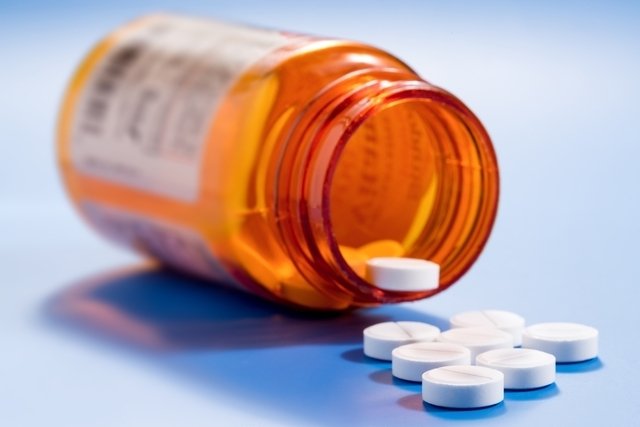Diverticulitis treatment typically involves the initiation of a liquid diet or fasting in addition to antibiotics, such as Metronidazole and Ciprofloxacin, to reduce inflammation and infection in the large intestine.
This treatment can be carried out at home, however complicated diverticulitis flare-ups that present with with an abscess, fistula or intestinal obstruction, for example, may require surgical interventions to drain any cysts or remove any inflamed part of the intestine.
Diverticulitis is characterized by the inflammation of diverticula, which are small pouches that form in the intestine. These generally appear due to a low fiber diet and constipation. This inflammation can cause symptoms such as abdominal pain, nausea, vomiting, fever, constipation or diarrhea. Learn more about what causes diverticulitis and the symptoms it presents with.

Treatment options
Diverticulitis treatment may involve the following approaches:
1. Medication
The medication the gastroenterologist prescribes for diverticulitis may vary depending on the severity of the condition:
Uncomplicated diverticulitis
To treat uncomplicated acute diverticulitis, it is necessary to reduce intestinal swelling by fasting or adhering to a liquid diet. Antibiotics are also necessary, usually Metronidazole and Ciprofloxacin, for 7 to 10 days, as they are effective in controlling bacterial infections in the intestines that may emerge. The doctor may consider prescribing medications for nausea, such as Metoclopramide, and for abdominal pain, such as acetaminophen.
Ongoing monitoring of your condition will likely be necessary. However, if symptoms such as fever and worsening abdominal pain occur during treatment, you should proceed to the emergency room.
Complicated diverticulitis
Complicated acute diverticulitis is treated in the hospital setting, with the use of IV antibiotics. A surgical procedure may also be necessary for cases that present with abscesses, for example. Abscesses caused by diverticulitis can be treated through puncture and drainage of discharge.
2. Surgery
Surgery to remove part of the colon due to diverticulitis is indicated in cases of:
- Complicated acute diverticulitis, in which there may be abscesses, fistula, heavy bleeding, perforation or intestinal obstruction;
- Recurrent diverticulitis, when flare-ups keep coming back in the same area of the gut
- Diverticulitis in people with weakened immunity, such as transplant recipients, people with HIV or kidney failure, for example, as new infections can put this population's lives at risk.
The surgery can be performed via laparoscopy or conventional open surgery, and is carried out under general anesthesia. Surgery time is variable and depends on the degree of inflammation of the diverticulitis and the amount of intestine to be removed. Generally, the person is discharged in about 3 days to continue recovery at home, with prescription medication to alleviate pain and discomfort and a meal plan.
3. Diet
Nutrition plays an essential role in recovery and prevention. For about 3 days after an acute flare-up, your doctor or registered dietitian will prescribe a liquid diet or fasting, to reduce initial inflammation.
Once controlled, the doctor will then approve a diet that promotes the optimal functioning of the intestine. This diet should be rich in whole grains, fruits, vegetables and legumes. The doctor or registered dietitian may also recommend the increased the consumption of probiotic foods, such as yogurts or Kefir, as they protect the intestinal mucosa, regulate the intestine and strengthen the immune system.
Also recommended: 10 Probiotic Foods: Benefits & How to Consume Them tuasaude.com/en/probiotic-foodsRead more about the diverticulitis diet that your doctor may advise to help speed-up recovery and prevent new flare-ups.
4. Home remedies
Home remedies for diverticulitis are aimed at preventing new flare-ups, as they help to recover the intestinal wall and reduce the risk of inflammation. Some natural treatment options are chamomile and valerian tea and cat's claw tea, as they are rich in antioxidants and anti-inflammatories. Check-out other anti-inflammatory teas you can prepare at home to reduce inflammation.
